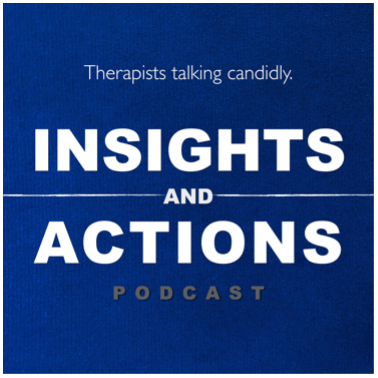Cyndi Turner's Blog, page 4
July 3, 2024
The Evolution of Schizophrenia Treatments
Schizophrenia is a chronic mental health condition that affects over 20 million people worldwide. Although it was first identified in 1896, it wasn’t until the mid-1950s that the first antipsychotic medication was introduced. Since then, there have been significant advances in schizophrenia treatment, and Insight Into Action Therapy has been at the forefront of these advances.
Insight Into Action Therapy provides top-notch schizophrenia treatment services to clients in Ashburn, Virginia, and the surrounding areas. Our schizophrenia treatment services are evidence-based, personalized, and focused on helping clients manage their symptoms, improve their overall quality of life, and achieve long-term recovery.
Call 703.935.8544 today to schedule an appointment or learn more about our services.
Understanding SchizophreniaSchizophrenia is a complex mental health condition that can be challenging to understand. The symptoms of schizophrenia vary from person to person, and the severity may fluctuate over time. However, some common symptoms include delusions, hallucinations, and difficulty with cognitive functioning.
While there is no known cure for schizophrenia, treatment can significantly improve a person’s quality of life and help them manage their symptoms. At Insight Into Action Therapy, we prioritize educating our clients about schizophrenia to help them better understand their condition and develop effective coping strategies.
Symptoms of SchizophreniaThe symptoms of schizophrenia can vary from person to person and may also change over time. Some common symptoms include:
HallucinationsDelusionsDisorganized thinking and speechAbnormal movementsDifficulty expressing emotionsWithdrawal from social interactionsThese symptoms can significantly impact a person’s ability to function in daily life and can lead to other mental health complications if left untreated.
Importance of Early Diagnosis and TreatmentEarly diagnosis and treatment are crucial in effectively managing schizophrenia. Studies have shown that early intervention can lead to better outcomes for individuals living with schizophrenia. This is why it is essential to pay attention to any changes in thoughts, behaviors, or emotions and seek professional help if needed.
How Schizophrenia Treatment Has EvolvedTreatment for schizophrenia has come a long way, especially within the past 70 years. The following are advances that have been made in schizophrenia treatment:
First-Generation AntipsychoticsThe first antipsychotic medication, chlorpromazine, was introduced in 1955, which revolutionized schizophrenia treatment. It was effective in reducing the symptoms of schizophrenia, such as hallucinations and delusions. However, it had significant side effects, such as sedation, weight gain, and movement disorders. Over the next few decades, other first-generation antipsychotics were introduced, such as haloperidol and fluphenazine. These medications were effective in treating symptoms, but they had significant side effects.
Second-Generation AntipsychoticsIn the 1990s, second-generation antipsychotics were introduced. These medications, such as risperidone, olanzapine, and quetiapine, were effective in treating symptoms of schizophrenia. They had fewer side effects than first-generation antipsychotics and were better tolerated by patients. However, they were more expensive than first-generation antipsychotics, and some studies suggested that they may increase the risk of metabolic syndrome.
Schizophrenia Treatment TodayIn addition to antipsychotic medication, there have been significant advances in other aspects of schizophrenia treatment. Insight Into Action Therapy offers a range of evidence-based therapies that can help individuals with schizophrenia manage their symptoms and improve their quality of life. Some of these therapies include:
Cognitive-behavioral therapy (CBT) – CBT is a talk therapy that helps individuals change negative thought patterns and behaviors. It is effective in reducing positive symptoms of schizophrenia, such as hallucinations and delusions.Family therapy – Family therapy can help individuals with schizophrenia and their families learn how to communicate effectively and manage conflict. It is effective in reducing the risk of relapse.Social skills training – Social skills training can help individuals with schizophrenia learn how to interact with others and improve their relationships. It is effective in reducing negative symptoms of schizophrenia, such as social withdrawal.Nutrition education – Insight Into Action Therapy provides nutrition education and counseling to help individuals with schizophrenia improve their overall health.Neurofeedback – Neurofeedback is a type of therapy that uses brainwave monitoring to help individuals with schizophrenia regulate their brain activity. It is effective in reducing symptoms of schizophrenia, such as auditory hallucinations.Person-centered therapy – Person-centered therapy is a type of talk therapy that focuses on the individual’s experience and perspective. It is effective in reducing symptoms of schizophrenia, such as negative self-image and low self-esteem.Advances in schizophrenia treatment have also led to improved outcomes for individuals with schizophrenia. With the proper treatment, many people with schizophrenia can manage their symptoms and live fulfilling lives.
Contact Insight Into Action Therapy Today for Schizophrenia Treatment ServicesIf you or someone you know is struggling with schizophrenia, contact Insight Into Action Therapy today. Our team of experienced therapists can provide evidence-based schizophrenia treatment services that can help you manage your symptoms and improve your quality of life. We are committed to delivering compassionate, personalized care to our clients.
Don’t suffer in silence – contact us today at 703.935.8544 or online to learn how we can help.
The post The Evolution of Schizophrenia Treatments appeared first on Insight Into Action Therapy.
June 19, 2024
Couples Therapy in Ashburn, VA
The divorce rate in Virginia is higher than the national average, with approximately 3.1 divorces per 1,000.1 Couples therapy in Ashburn, VA, can be a powerful tool for improving relationships and strengthening bonds. At Insight Into Action Therapy, we understand that relationships can be challenging, and we are here to support you and your partner as you navigate the ups and downs of your journey together.
Call 703.935.8544 to schedule an appointment. We offer both in-person and virtual sessions to accommodate your needs and preferences.
What Is Couples Therapy?Couples therapy is a type of counseling that focuses on the relationship between two people. It can help couples who are experiencing challenges such as communication issues, conflicts, infidelity, and other problems that can strain a relationship. A couples therapy program provides a safe and supportive space to work through their issues and learn new skills to build a stronger, healthier relationship.
How Does Couples Therapy Work?Couples therapy typically involves sessions with a licensed therapist who specializes in couples therapy. The therapist will work with you and your partner to identify the underlying issues causing problems in your relationship. You will explore ways to improve communication, build trust, and resolve conflicts.
The therapist may use a variety of techniques to help you and your partner work through your issues, including:
Cognitive-behavioral therapy (CBT) – CBT focuses on identifying negative behavior patterns and developing new, more positive ways of interacting.Emotionally-focused therapy – This approach emphasizes the importance of emotional connection in relationships and helps couples learn new ways of expressing their feelings.Solution-focused therapy – This type of therapy focuses on finding solutions to specific problems and setting achievable goals for the relationship.At Insight Into Action Therapy, we offer a variety of therapies that can be tailored to meet each couple’s unique needs. Our therapists are experienced in working with individuals and couples who are dealing with a range of issues, including addiction, trauma, depression, anxiety, and other challenges that can impact relationships.
Benefits of Couples TherapyA couples therapy program can offer a range of benefits, including:
Improved communication – Couples therapy can teach you and your partner how to communicate more effectively, reducing conflicts and misunderstandings.Increased intimacy – Couples therapy can help you and your partner reconnect emotionally and physically, leading to a more profound sense of intimacy.Better conflict resolution skills – Learning to resolve conflicts healthily can help you and your partner build a stronger, more resilient relationship.Greater self-awareness– Couples therapy can help you and your partner become more aware of your thoughts, feelings, and behaviors, leading to more significant personal growth and a deeper understanding of each other.Couples therapy can be valuable for couples looking to improve their relationship. Therapists are dedicated to helping you and your partner build a stronger, healthier connection.
Why Choose Insight Into Action Therapy for Couples Therapy in Ashburn, VA?At Insight Into Action Therapy, we understand that every couple is unique, and we offer personalized treatment to meet each couple’s individual needs. Our therapists are experienced in working with individuals and couples dealing with various challenges, and we use evidence-based therapies to help couples build stronger, healthier relationships.
In addition, we are LGBTQ-friendly and offer nutrition education and counseling to support overall wellness. Our therapists are dedicated to providing a safe and supportive space where couples can work through their issues and achieve their goals.
Contact Insight Into Action for Couples Therapy in VA TodayIf you are looking for couples therapy in Ashburn, VA, contact Insight Into Action Therapy today. Our therapists are here to support you and your partner on your journey to a stronger, healthier relationship. Call 703.935.8544 or complete our online form to schedule an appointment. We look forward to helping you and your partner build a stronger connection and lasting happiness.
Footnotes:
CDC – VirginiaThe post Couples Therapy in Ashburn, VA appeared first on Insight Into Action Therapy.
June 11, 2024
Negative Trends in How Therapy Is Practiced
The latest episode of the Insights & Actions podcast is out now! In this episode, Craig James, LCSW, LSATP, MAC, Matt Christian, LCSW, and Johnny Pierce, PsyD talk about negative trends they’re seeing in mental health therapy.
The guys discuss:
Excessive boundariesReinforcing clients to “point the finger at others”Creating an identity out of painHow some treatment programs take advantage of clients…and much more!
Have you ever wanted to hear what therapists really talk about when they’re out of session? The Insights & Actions podcast allows you to do just that. Insights & Actions are candid conversations with Insight Into Action Therapy and Insight Recovery Centers’ clinical team.
Insights & Actions can be found on YouTube, Spotify, Apple podcasts, Amazon music, and Audible.





If you would like a free consultation with a therapist at Insight Into Action Therapy, please contact us!

The post Negative Trends in How Therapy Is Practiced appeared first on Insight Into Action Therapy.
June 5, 2024
Anxiety Treatment in Ashburn, VA
Dealing with anxiety can be a challenging experience. It can interfere with your daily life, making it difficult to focus or engage in activities you enjoy.
In early 2023, reports indicated that 32.0% of Virginia’s adult population experienced symptoms of anxiety disorders. This is slightly below the national average in the U.S., which stood at 32.3%.1 However, anxiety remains a widespread issue throughout Virginia.
If you are seeking anxiety treatment in Ashburn, VA, Insight Into Action Therapy can help. Our anxiety treatment program is designed to help individuals overcome their anxiety and live a more fulfilling life.
Call 703.935.8544 today to schedule an appointment with one of our licensed therapists.
Understanding AnxietyAnxiety is a natural stress response. It is a feeling of fear or apprehension about what’s to come. While anxiety is a normal stress reaction, it can become overwhelming and interfere with your daily life. Anxiety disorders are the most common mental health condition, affecting millions of people worldwide.
Symptoms of AnxietyAnxiety can manifest in different ways for different people. Some common symptoms of anxiety include:
Feeling nervous, restless, or tenseHaving a sense of impending danger, panic, or doomIncreased heart rate and breathingSweating and tremblingDifficulty concentratingTrouble sleepingGastrointestinal issuesOther symptoms of anxiety include avoiding situations that trigger anxiety, such as social gatherings or public speaking.
Causes of AnxietyAnxiety can be caused by a combination of factors, including genetics, brain chemistry, and life experiences. Some common causes of anxiety include:
Family history of anxiety disordersTraumatic events or experiencesChronic stressMedical conditions or illnessesSubstance abuse or withdrawalIf you or someone you know is experiencing anxiety, it’s vital to seek professional help.
Anxiety Treatment ProgramAt Insight Into Action Therapy, we offer a comprehensive anxiety treatment program that is designed to help individuals overcome their anxiety and live a more fulfilling life. Our program consists of a combination of therapy and medication management.
TherapyOur therapy sessions are led by licensed therapists who specialize in anxiety treatment. We offer a variety of therapy modalities, including cognitive-behavioral therapy (CBT), acceptance and commitment therapy (ACT), and person-centered therapy. These therapy modalities are evidence-based and have been proven effective in treating anxiety.
Medication ManagementIn some cases, medication may be necessary to manage anxiety symptoms. Our team of licensed professionals can help you determine if medication is proper for you. We offer medication management services to ensure that you are receiving the appropriate drug and dosage to manage your anxiety symptoms.
Anxiety Treatment in VAAs a leading provider of anxiety treatment in Ashburn, VA, Insight Into Action Therapy is committed to helping individuals overcome their anxiety and live a more fulfilling life. Our team of licensed professionals is dedicated to providing our clients with the highest quality of care. We understand everyone is unique, so we offer personalized treatment plans to meet each client’s needs.
We are proud to offer a variety of programs and services to our clients, including adolescent/teen programs, aftercare, neurofeedback (alpha stem), process addiction treatment, and more. Our team of licensed professionals treats a variety of mental health issues, including anxiety, depression, bipolar disorder, personality disorders, PTSD, and more.
Contact Insight Into Action Therapy to Start Anxiety TreatmentIf you are seeking anxiety treatment in Ashburn, VA, contact Insight Into Action Therapy today. Our team of licensed professionals dedicates themselves to helping individuals overcome their anxiety and live a more fulfilling life. d treatment plans to meet the specific needs of each client.
Contact us today at 703.935.8544 or online to learn more about how we can help you.
Footnotes:
KFF – Mental Health in VirginiaThe post Anxiety Treatment in Ashburn, VA appeared first on Insight Into Action Therapy.
May 15, 2024
Does Weed Stunt Your Growth?
Weed, marijuana, pot, cannabis—whatever you call it—is a popular drug among individuals of all ages. But when it comes to teens, there is a growing concern about whether or not weed can cause developmental issues. “Does weed stunt your growth?” is a common question among parents and teenagers alike. While there isn’t a straightforward answer to this question, some factors should be considered.
Insight Into Action Therapy’s teen treatment program in Virginia can help if you or your loved one is struggling with substance abuse. Call 703.935.8544 today to learn more about our evidence-based treatment programs and how we can help you achieve lasting recovery.
What Is Weed?Weed is a psychoactive drug that is made from the Cannabis sativa plant. It contains a chemical called tetrahydrocannabinol (THC), which is responsible for the drug’s “high” effect. Weed can be smoked, vaporized, or ingested in various forms like edibles, tinctures, and oils. It is commonly used for its relaxing and euphoric effects, but it can also cause adverse effects like anxiety, paranoia, and memory impairment.
How Does Weed Affect the Body?When weed is consumed, THC enters the bloodstream and travels to the brain. It binds to cannabinoid receptors in the brain, responsible for functions like pleasure, memory, concentration, and coordination.
The short-term effects of weed include altered perception, impaired memory and concentration, increased heart rate, and dry mouth and eyes. In some cases, weed can also cause anxiety, paranoia, and hallucinations.
The long-term effects of weed are still being studied, but some research suggests that it can have adverse effects on mental health, such as increasing the risk of psychotic disorders like schizophrenia. It can also affect lung health if smoked and lead to addiction and other substance use disorders.
Does Weed Stunt Your Growth?The question of whether weed can stunt growth is a controversial one. Some studies suggest that heavy, chronic use of weed during adolescence—when the body is still growing and developing—can lead to shorter stature. However, other studies have found no association between weed use and height.
One study published in the Journal of Clinical Endocrinology and Metabolism found that heavy weed use during adolescence was associated with a decrease in height of about 0.7 inches in males and 0.6 inches in females. Another study published in the American Journal of Epidemiology found no significant association between weed use and height in young adults.
It’s worth noting that the studies that found an association between weed use and height were based on self-reported data, which can be unreliable. Additionally, other factors like nutrition and genetics can also affect height.
Can Weed Stunt Growth in Other Ways?Apart from height, there are other ways in which weed can potentially stunt growth in teens. For example, weed can affect brain development, which continues until the mid-20s. Heavy, chronic weed use during this period can lead to cognitive deficits like impaired memory and attention, lower IQ scores, and decreased academic achievement.
Weed can also affect mood and emotional development in teens. Research suggests that heavy, chronic weed use during adolescence can increase the risk of depression, anxiety, and suicidal ideation.
How Can Insight Into Action Therapy Help?At Insight Into Action Therapy, we understand that substance use disorders and mental health issues can be complex and challenging to overcome. That’s why we offer a teen treatment program in Virginia tailored to meet adolescents’ unique needs. Our program combines evidence-based treatments like cognitive-behavioral therapy, motivational interviewing, and family therapy with holistic approaches like neurofeedback and nutrition education.
Call Insight Into Action Therapy Today to Enroll in Our Teen Treatment ProgramIf you or a loved one is struggling with weed use or any other substance use or mental health issue, we are here to help. Contact us today at 703.935.8544 or online to learn more about our teen treatment program in Virginia and how we can support you on your journey to recovery.
The post Does Weed Stunt Your Growth? appeared first on Insight Into Action Therapy.
May 1, 2024
Are Hallucinogens Addictive?
Hallucinogens are a class of psychoactive substances that alter perception, mood, and consciousness. They include LSD, psilocybin, mescaline, and DMT, among others. While these substances do not produce physical dependence like opioids or alcohol, people can still develop a problematic pattern of use that interferes with their daily functioning, relationships, and well-being. But are hallucinogens addictive?
Insight Into Action Therapy can help if you or someone you love is struggling with substance abuse related to hallucinogens or any other drugs. Call 703.935.8544 today to schedule a consultation and learn more about our evidence-based addiction treatment center programs in Virginia.
Understanding Hallucinogen Use DisorderHallucinogen use disorder is a condition characterized by a persistent and recurrent pattern of hallucinogen use despite experiencing negative consequences. According to the Diagnostic and Statistical Manual of Mental Disorders (DSM-5), the criteria for diagnosing hallucinogen use disorder include:
Taking more significant amounts or for longer than intendedPersistent desire or unsuccessful attempts to cut down or control useSpending a lot of time obtaining, using, or recovering from the substanceCraving or strong urge to use the substanceFailing to fulfill significant obligations at work, school, or home due to useContinuing to use it despite social or interpersonal problems caused by itGiving up important activities because of the substanceUsing in physically hazardous situationsContinued use despite knowing it causes or worsens physical or psychological problemsDeveloping tolerance or needing larger doses to achieve the desired effectExperiencing withdrawal symptoms when not usingDepending on the individual and the substance, these symptoms can vary in intensity and frequency. For example, LSD can cause intense and long-lasting trips that may lead to flashbacks or psychosis, while psilocybin mushrooms can cause nausea, anxiety, or confusion. Mescaline and DMT are less common and often associated with shamanic or spiritual practices.
Causes and Risk Factors of Hallucinogen Use DisorderThe causes of hallucinogen use disorder are complex and multifactorial. They may include genetic, environmental, psychological, and social factors that interact and influence each other. Some of the risk factors that may increase the likelihood of developing the disorder are:
Family history of substance use or addictionTrauma, abuse, or neglectMental health disorders such as depression, anxiety, or bipolar disorderPeer pressure or social norms that promote drug useCuriosity, thrill-seeking, or self-explorationLack of purpose, meaning, or spiritual connectionEasy access to drugs or misinformation about their effectsWhile some people may use hallucinogens for recreational, spiritual, or therapeutic purposes without experiencing adverse effects, others may develop a problematic pattern of use that leads to addiction. The reasons for this are not fully understood, but they may involve changes in brain chemistry, neurotransmission, and connectivity that affect reward, memory, and perception.
Hallucinogens Addiction Treatment at Insight Into Action TherapyAt Insight Into Action Therapy, we offer evidence-based and personalized treatment for hallucinogen use disorder. Our approach is holistic, compassionate, and empowering as we strive to address the underlying causes and promote long-lasting recovery. Some of the therapies and modalities we use are:
Motivational interviewing to enhance the client’s readiness to change and self-efficacyCognitive-behavioral therapy to challenge and replace maladaptive thoughts and behaviorsMindfulness-based relapse prevention to cultivate present-moment awareness and coping skillsFamily therapy to address interpersonal conflicts and support the client’s recoveryNeurofeedback (alpha stim) to regulate brainwave activity and improve mood and focusNutritional education and counseling to promote physical and mental health and prevent relapseWe also have specialized programs for adolescents and teens, process addiction, and aftercare, as well as LGBTQ-friendly and trauma-informed services. Our therapists are trained and experienced in treating co-occurring disorders, such as anxiety, depression, bipolar, and personality disorders, and use a person-centered and integrative approach to meet the client’s needs and goals.
Call Insight Into Action Therapy Today to Start Our Addiction Treatment Program in VirginiaIf you or someone you know is struggling with hallucinogen use disorder, do not hesitate to reach out to Insight Into Action Therapy. We can provide a comprehensive assessment, individualized treatment plan, and ongoing support to help you achieve and maintain sobriety and wellness. Contact us today at 703.935.8544 or online to schedule a consultation and take the first step toward a brighter future.
The post Are Hallucinogens Addictive? appeared first on Insight Into Action Therapy.
April 25, 2024
Insightful Pathways: Why Language Matters in Mental Health
Language is more than just a tool for communication; it shapes our thoughts, feelings, and perceptions. In the realm of mental health, the words we use can either empower individuals or perpetuate harmful stereotypes. Understanding the importance of language in mental health care is crucial for creating a supportive and inclusive environment for everyone.
The words we choose can either reduce or reinforce the stigma surrounding mental health and substance use disorder issues. Using stigmatizing language, such as “addict” or “alcoholic,” can further marginalize individuals struggling with their mental health. Instead, using neutral or empathetic language can help create a more compassionate and understanding atmosphere. So, instead of saying “addict,” you could say “person with substance use disorder.” This is what’s known as person-first language.
Person-First Language is a linguistic practice that emphasizes the individuality and humanity of a person before their condition or identity. The core principle is to prioritize the person over the descriptor, focusing on their inherent dignity and worth beyond any labels.
There are numerous reasons we should all adopt Person-First Language. First, using this type of language acknowledges the individual before anything else. It affirms that one’s identity or condition does not define their entire existence. Secondly, it helps in reducing stigma by reframing how we perceive and discuss various attributes or conditions. It fosters a culture of understanding and acceptance. And finally, by employing Person-First Language, we promote equality and inclusivity, ensuring that everyone is recognized as a unique individual with their own story and worth.
Here are some other examples of Person-First Language in action:
Instead of saying “autistic child,” say “child with autism.”Rather than “homeless person,” use “person experiencing homelessness.”Instead of “schizophrenic” opt for “person with schizophrenia.”By embracing this approach, we can contribute to creating a more compassionate and understanding society—one where every individual is recognized for who they are beyond any labels or limitations. Let’s choose our words thoughtfully and intentionally, always putting the person before the condition or identity. Together, we can shape a world where language reflects our shared humanity and values.
If you have any questions about this topic, give us a call at 703-214-9499.
The post Insightful Pathways: Why Language Matters in Mental Health appeared first on Insight Into Action Therapy.
Male Therapists Talk Men’s Mental Health – A Deeper Dive
The latest episode of the Insights & Actions podcast is out now! In this episode, Craig James, LCSW, LSATP, MAC, Matt Christian, LCSW, and Johnny Pierce, PsyD talk about masculinity and vulnerability, male violence and bullying, men’s mental health, and relationships.
In addition, the guys discuss:
Male violence and bullying,Men’s “compartmentalization”,The challenges facing different generations of men,Self-care strategies,…and much more!
Have you ever wanted to hear what therapists really talk about when they’re out of session? The Insights & Actions podcast allows you to do just that. Insights & Actions are candid conversations with Insight Into Action Therapy and Insight Recovery Centers’ clinical team.
Insights & Actions can be found on YouTube, Spotify, Apple podcasts, Amazon music, and Audible.





If you would like a free consultation with a therapist at Insight Into Action Therapy, please contact us!

The post Male Therapists Talk Men’s Mental Health – A Deeper Dive appeared first on Insight Into Action Therapy.
April 17, 2024
How to Stay Motivated to Change in Addiction Recovery
If you or a loved one is seeking an addiction treatment program, it’s essential to understand that motivation for change in recovery is a crucial factor for success. Recovery motivation can be challenging to maintain, especially during the early stages. However, with the right tools and support, staying motivated in addiction recovery is possible.
Insight Into Action Therapy provides addiction treatment programs in Ashburn and Fairfax, Virginia. Our holistic approach to recovery incorporates evidence-based treatment methods and a focus on cultivating motivation for change. We believe that each individual has the strength and capabilities to overcome addiction, and our goal is to help them tap into their innate motivation for recovery.
Call 703.935.8544 today to learn more about our addiction treatment programs and how we can help you or your loved one find lasting recovery.
5 Recovery Motivation TipsSustaining motivation for addiction recovery can be a daily battle, but some strategies can help. Here are five tips to help you maintain your motivation for change during addiction recovery:
1. Focus on the Benefits of Recovery MotivationOne of the best ways to sustain motivation for change in recovery is to focus on the benefits of sobriety. Recovery motivation can be challenging to maintain when the negative consequences of substance abuse seem distant or abstract. However, by focusing on the immediate and tangible benefits of sobriety, it can become more accessible to stay motivated in addiction recovery. Some advantages of recovery motivation include increased physical health, improved mental health, stronger relationships, and a sense of purpose and meaning in life.
2. Create a Support System for Motivational RecoveryAnother critical factor in maintaining recovery motivation is creating a support system. This support system can include family, friends, and addiction treatment professionals. Building a solid support system can motivate addiction recovery by providing accountability, encouragement, and a safe, non-judgmental space to discuss challenges and successes in recovery.
3. Practice Self-Care for Recovery MotivationSelf-care is an essential component of maintaining recovery motivation. Addiction recovery can be a challenging journey, and it’s vital to take care of yourself both physically and emotionally. Some self-care strategies for motivational recovery include exercise, healthy eating, meditation, journaling, and spending time in nature. Practicing self-care can help you stay motivated in addiction recovery by promoting a sense of well-being and reducing stress.
4. Focus on the Present MomentStaying motivated in addiction recovery can be challenging when you feel overwhelmed by past mistakes or anxious about the future. Focusing on the present moment can help you stay motivated for change in recovery. Mindfulness practices, such as meditation or breathing exercises, can help you stay present and focused on the current moment. By cultivating mindfulness, you can better manage stress and anxiety and stay motivated in addiction recovery.
5. Set Realistic Goals for Recovery MotivationSetting realistic goals is another important strategy for maintaining recovery motivation. It’s essential to set goals that are achievable and realistic. Setting unrealistic goals can lead to feelings of frustration and failure, which can undermine recovery motivation. Instead, set small, attainable goals that build momentum and provide a sense of accomplishment. Celebrating these small successes can help you stay motivated in addiction recovery.
Maintaining recovery motivation is a crucial factor in addiction recovery. By focusing on the benefits of sobriety, creating a support system, practicing self-care, focusing on the present moment, and setting realistic goals, you can stay motivated for change in recovery.
Call Insight Into Action Therapy Today to Learn More About Recovery Motivation and Start TreatmentInsight Into Action Therapy offers a variety of addiction treatment programs in Ashburn and Fairfax, Virginia, including individual therapy, group therapy, family therapy, and medication-assisted treatment, that can help you maintain recovery motivation and achieve lasting sobriety. Contact us today at 703.935.8544 or online to learn more about how we can help you on your journey to recovery.
The post How to Stay Motivated to Change in Addiction Recovery appeared first on Insight Into Action Therapy.
April 1, 2024
Radical Acceptance in DBT: How to Practice It
Dialectical behavior therapy (DBT) is a type of cognitive-behavioral therapy that has been proven effective for treating a wide range of mental health issues, including addiction. At Insight Into Action Therapy, we use DBT to help our clients achieve lasting recovery from substance use disorders and mental health challenges. One of the critical concepts of DBT is radical acceptance, which can be a powerful tool for those seeking to transform their lives.
If you or someone you love is struggling with addiction and mental health concerns, Insight Into Action Therapy offers compassionate and evidence-based care. Our team of experienced therapists is dedicated to helping individuals learn the skills they need to build a fulfilling life in recovery.
Call 703.935.8544 today to learn more about DBT for addiction in Ashburn and Fairfax, Virginia. Our DBT program can benefit you or your loved one, and we are here to support you every step of the way.
What Is Radical Acceptance?Radical acceptance is the practice of fully accepting reality as it is without judgment or resistance. It involves acknowledging the present moment and all its difficulties without trying to change or escape it. In DBT, radical acceptance is a crucial component of mindfulness, which is the ability to be fully present in the moment and observe one’s thoughts and emotions without getting caught up in them.
DBT Radical Acceptance DefinitionAt its core, the definition of radical acceptance is about embracing reality, even when it’s painful or difficult. This might mean accepting that you have a substance use disorder or that someone you love has passed away. It might mean accepting that you made a mistake or that you are struggling with a mental health challenge. Radical acceptance is not about giving up or resigning yourself to a hopeless situation; it’s about acknowledging reality and taking steps to move forward positively.
How to Practice Radical Acceptance in DBTPracticing radical acceptance can be challenging, especially when dealing with difficult emotions or situations. Here are some tips on how to practice radical acceptance in DBT:
Observe and describe the situation – Start by observing the situation without judgment. Describe what’s happening, and try to be as objective as possible.Acknowledge your emotions – Once you’ve observed the situation, acknowledge them without trying to change them. Allow yourself to feel the emotion, and don’t judge yourself for it.Accept reality as it is – Once you’ve acknowledged your emotions, accept reality. This might mean accepting that you made a mistake or are facing a difficult situation.Take action – Once you’ve accepted reality, take action to move forward positively. This might mean seeking help from a therapist or taking steps to improve your situation.In addition, practicing radical acceptance can be emotionally taxing, so prioritizing self-care is essential. This might mean taking breaks when needed, practicing relaxation techniques, or engaging in activities that bring you joy.
How Insight Into Action Therapy Can HelpAt Insight Into Action Therapy, we use DBT to help our clients develop the skills to practice radical acceptance and achieve lasting recovery. Our programs and services include adolescent/teen programs, aftercare, neurofeedback (alpha stim), process addiction treatment, and more. We are committed to helping individuals build a fulfilling life in recovery through evidence-based and compassionate care.
If you want to learn more about our DBT program or other services, please contact us today. Our team is dedicated to supporting you on your journey toward healing and recovery.
Contact Insight Into Action Therapy Today to Start Radical Acceptance DBTIf you or someone you love is struggling with a substance use disorder or mental health challenge, reach out to Insight Into Action Therapy today. Our team of experienced therapists can help you develop the skills you need to practice radical acceptance and transform your life.
Contact us today at 703.935.8544 or online to learn more about our programs and services.
The post Radical Acceptance in DBT: How to Practice It appeared first on Insight Into Action Therapy.



